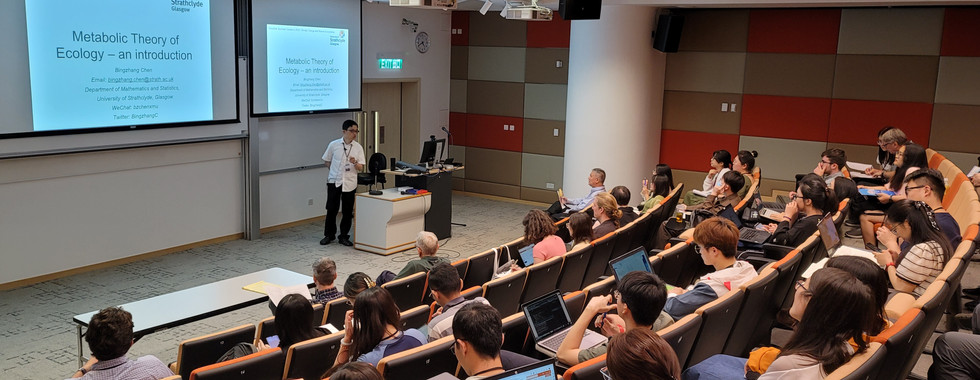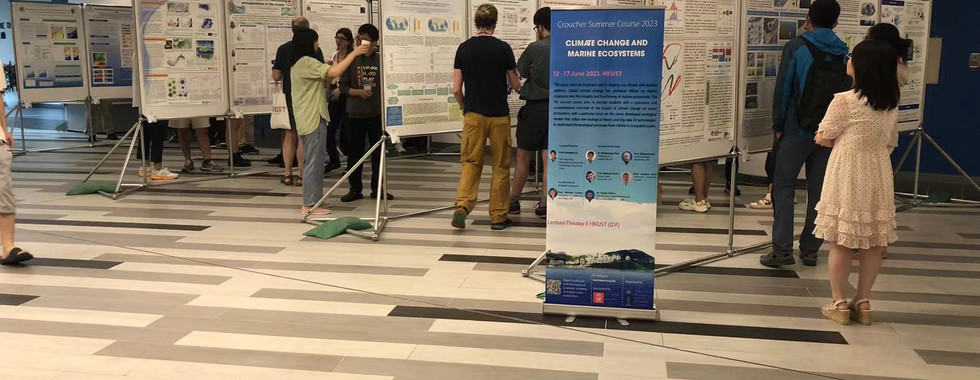The ocean plays a key role in the global carbon cycle by acting as a sink for the increase in atmospheric CO2 from fossil fuel burning and other processes. It largely affects Earth’s climate, but is facing growing issues such as global warming, eutrophication, and ocean acidification, which directly affect the metabolism and physiology of marine organisms and functions of marine ecosystems. Summer courses, funded by the Croucher Foundation, have been taught every other year since 2013, generally emphasizing climate impacts on the structure and functioning of marine microbial communities.

This year’s summer course (5th), with the theme of climate change and marine ecosystems, was successfully held at HKUST on 12 – 17, June 2023. This course aims to provide students with a systematic and comprehensive overview of the impact of global climate change on ocean ecosystems, with a particular focus on the newly developed ecological models that utilize new ecological theory and big data AI technologies to understand the ecological processes from cellular to ecosystem scales. Chaired by Prof. Hongbin Liu, the course invited 6 instructors with broad expertise especially in ecological modeling and 35 students with related study area. All applicants enjoyed the happy time of learning, discussing, and hands-on practicing on models every day. A certificate award was provided to each student who completed the course, and the 5 best poster presentations were selected and awarded.
A key goal of this course is that at the end of the course, all students are able to do one type of modeling, and finally to simulate and predict responses of marine organisms and ecosystems to changing ocean conditions. In our next summer course, we will focus on omics techniques, deciphering the fundamental molecular mechanisms for organisms in the ocean.

























































Comments